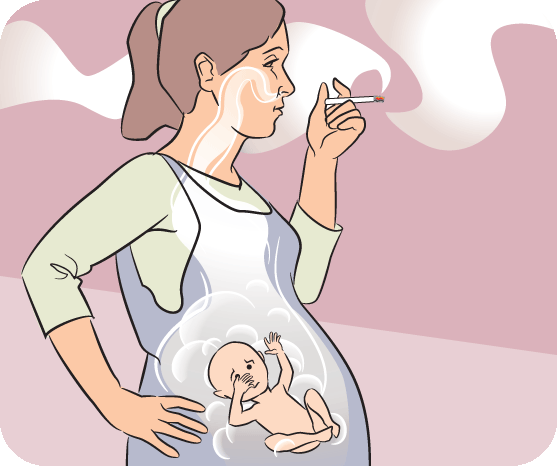
Smoking During Pregnancy: A Comprehensive Overview
Introduction
Smoking during pregnancy poses significant risks to both the mother and the developing fetus. Despite extensive public health campaigns and medical warnings, smoking rates among pregnant women remain alarmingly high. This article provides a comprehensive overview of the adverse effects of smoking during pregnancy, including its impact on maternal and fetal health, as well as strategies for smoking cessation.
Maternal Health Risks
- Placental Abruption: Smoking increases the risk of placental abruption, a condition in which the placenta separates from the uterine wall before delivery. This can lead to severe bleeding and premature birth.
- Preeclampsia: Smoking is associated with an increased risk of preeclampsia, a pregnancy-related condition characterized by high blood pressure and protein in the urine. Preeclampsia can lead to serious complications for both the mother and the baby.
- Gestational Diabetes: Smoking increases the risk of gestational diabetes, a type of diabetes that develops during pregnancy. Gestational diabetes can lead to complications such as premature birth, macrosomia (large birth weight), and increased risk of obesity and diabetes in the child later in life.
- Cardiovascular Disease: Smoking during pregnancy increases the risk of cardiovascular disease, including heart attack and stroke, later in life.
- Cervical Cancer: Smoking during pregnancy has been linked to an increased risk of cervical cancer.
Fetal Health Risks
- Preterm Birth: Smoking is the leading preventable cause of preterm birth, which is defined as delivery before 37 weeks of gestation. Preterm infants are at increased risk of health problems, including respiratory distress syndrome, cerebral palsy, and developmental delays.
- Low Birth Weight: Smoking during pregnancy reduces the flow of oxygen and nutrients to the fetus, resulting in low birth weight. Low birth weight infants are more likely to experience health problems and developmental delays.
- Birth Defects: Smoking during pregnancy increases the risk of certain birth defects, including cleft lip and palate, heart defects, and neural tube defects.
- Stillbirth: Smoking during pregnancy increases the risk of stillbirth, which is defined as the death of a baby in the womb after 20 weeks of gestation.
- Sudden Infant Death Syndrome (SIDS): Smoking during pregnancy has been linked to an increased risk of SIDS, which is the sudden and unexplained death of a baby under the age of one year.
Strategies for Smoking Cessation
Quitting smoking during pregnancy is crucial for improving the health outcomes of both the mother and the baby. There are several strategies that can help pregnant women quit smoking:
- Behavioral Therapy: Behavioral therapy involves working with a therapist to develop coping mechanisms, identify triggers, and change smoking behaviors.
- Nicotine Replacement Therapy (NRT): NRT provides the body with small doses of nicotine, which can help reduce cravings and withdrawal symptoms. NRT is available in various forms, including patches, gum, and lozenges.
- Medications: Certain medications, such as bupropion and varenicline, can help reduce cravings and block the effects of nicotine.
- Support Groups: Joining a support group can provide pregnant women with encouragement, motivation, and practical advice from others who are trying to quit smoking.
- Telehealth: Telehealth services, such as phone counseling and online support groups, can provide pregnant women with access to smoking cessation resources from the comfort of their own homes.
Conclusion
Smoking during pregnancy is a serious public health concern that poses significant risks to both the mother and the developing fetus. The adverse effects of smoking during pregnancy include placental abruption, preeclampsia, gestational diabetes, cardiovascular disease, cervical cancer, preterm birth, low birth weight, birth defects, stillbirth, and SIDS. Quitting smoking during pregnancy is essential for improving the health outcomes of both the mother and the baby. There are several strategies that can help pregnant women quit smoking, including behavioral therapy, nicotine replacement therapy, medications, support groups, and telehealth services. Healthcare providers should actively screen pregnant women for smoking and provide them with comprehensive smoking cessation support. By working together, we can reduce the prevalence of smoking during pregnancy and improve the health of future generations.